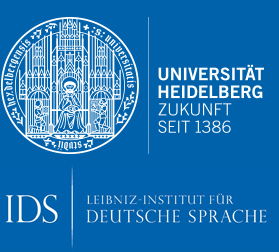Here you will find the abstracts of the articles published in the Online Handbook. These articles discuss concepts that are inductively deduced from linguistic cultures and include fundamental language-critical topics such as “language criticism and language norms”, “language criticism and standardization”, “language criticism and language purism”, “language criticism and language institutions” as well as “language criticism and language ideologies”. You may access the comparative articles reflecting these topics by means of language comparisons and cultural comparisons (for German, English, French, Italian, and Croatian) via the tab “language criticism in European comparison”.
Recent article:
Language Ideologies and Language Criticism in German
Abstract. This article will introduce language ideologies prominently reflected in German Studies and associated with forms of language criticism. These language ideologies are closely linked to milestones in the standardisation of the German language, to thinking surrounding the diversity of variants and the related issue of language prestige, to the establishment of a national language, as well as to the delicate balance between the roles of ‘lay persons’ and experts, which, in the 21st century, has led to an increased academisation of the discourse as well as a growing debate surrounding the question of whether language is or should be ideological, ideologically laden or non ideological.
Figurative language, as a condensate of socio culturally entrenched language ideologies, lends itself to identifying hardened concepts about language. In German Studies, metaphors are a typical linguistic historical point of reference in the study of language ideologies. To illustrate the function of metaphoric language, this article will therefore employ the metaphoric image of the plant: an image that has remained a fairly consistent pattern from the 17th century until the present.
Read and download the complete quotable article here.
Click here to read the article “Language Ideologies and Language Criticism in European Perspective”
Language institutions and language criticism in German
Abstract. With the exception of the Council for German Orthography, there is no German governmental institution with a political mandate to legitimately provide support for a linguistic standardisation of a national language. Against this backdrop, this article will examine the various non-governmental German-language linguistic institutions. In the German-speaking regions, the language academies of neighbouring countries have always served as a model; however, the linguistic societies and language associations that have been established have primarily been devoted to language cultivation.
Read and download the complete quotable article here.
Linguistic purism and language criticism in German
Abstract. Linguistic purism is a form of language criticism. Its primary objective is to ‘keep the language pure’. Keeping the language pure first of all refers to the rejection of foreign-language influences, especially in lexis, but attempts to develop a norm as well as the advancement of a standard or national language are also part of linguistic purism. Linguistic purism can be promoted by individuals as well as by institutions. First attempts at trying to keep the German language pure date back to language societies in the 17th century. From a diachronic perspective, purism has focused on different aspects of language and its usage. What all puristic efforts have in common is that they are usually linked to a rise in national sentiment. Despite institutional efforts – and contrary to other languages – purism is not part of the German language policy and thus not government-controlled.
Read and download the complete quotable article here.
Click here to read the article “Linguistic purism and language criticism in European perspective”
Standardisation and language criticism in German
Abstract. Standardisation is mainly discussed in relation to language history, language variation and sociolinguistics. Investigations of the role of standardisation in German language criticism are as yet a desideratum. However, individual aspects of standardisation are sometimes consulted for the explanation or evaluation of language criticism in German. This article describes forms of language reflexion and language criticism as regulatory aspects for orienting orality and literacy to norms. First, authorities and institutions guiding the process of standardisation are discussed (e. g. church, nobility, bourgeoisie, scholars, linguistic societies, publications, or rhetorical and stylistic principles). Second, domains that were to be standardised are mentioned (e. g. lexis, syntax). In addition to the historical perspective, this article looks at current issues about standardisation in correlation with language criticism.
Read and download the complete quotable article here.
Click here to read the article “Standardisation and language criticism in European perspective”
Critique of language norms (Sprachnormenkritik) in German
Abstract. Language norms and language standardisation processes are closely linked to language reflection and language criticism, being either linguistically described or evaluated from both academic (linguistic) and non-academic perspectives. In the 1980s, the process of language standardisation began to be investigated and described as part of a newly formed linguistic subfield – Sprachnormenkritik (critique of language norms). The historical perspective shows, however, that intellectual circles had started to reflect upon and criticise language norms and language standardisation processes much earlier and continue to do so to the present day. Since the beginning of the 21st century, linguists have aimed at first describing language norms and language standardisation processes and then evaluating them based on linguistic criteria. This article applies a concept of critique of language norms that spans a continuum of metalinguistic utterances ranging from cautious deliberation of alternative expressions to clearly defined positions on ‘good’ or ‘bad’ language use, including both the academic (linguistic) and non-academic perspectives. Critique of language norms is thus understood here as a reflection on language norms and language standardisation in which criteria are expressed explicitly (by more or less descriptive or evaluative metalinguistic comments), or realised implicitly.
Read and download the complete quotable article here.
Click here to read the article “Critique of language norms in European perspective”

